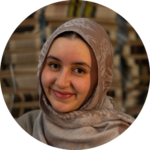Polio in Gaza: Beyond Medical Threats
While polio threatens the health of Gaza, the liberation of Palestinians threatens the West and the Zionist entity.
Internalized efforts to humanize the colonizers is a beloved formula among Western powers. They delegitimize colonial violence and their inhumane structures. As we approach the one-year mark of the ongoing genocide in Gaza, these efforts continue to creep in the shadows of Western media, political and presidential campaigns, and public sentiments.
When the first polio case in Gaza was identified, Israel’s reluctant agreement to a temporary “humanitarian pause” for aid made headlines. The mainstream coverage of polio resulted in an inevitable process of Western imperialism: politicizing humanitarian crises. And this politicization created a threat in Gaza beyond the medical realm.
The first form of threat targeted the existing humanitarian crisis in Gaza: a crisis that expanded across the two million displaced lives, intensified already catastrophic food insecurity, obliterated an already collapsed medical system, and decimated the entirety of Gaza’s infrastructure. For that, the politicization of the polio outbreak has developed into threatening a system that hangs by a thread.
This type of politicization of humanitarian crises transcends the twenty-first century and the Middle East. When the Korean peninsula saw an outbreak of food insecurity following the Korean War, the North Korean humanitarian aid case controversies surfaced between US-led initiatives and the US. Likewise, when Afghanistan sought humanitarian assistance following US advances in the region, humanitarian aid from the West was determined by political expediency not human necessity.
This mentality continues to contaminate current social activism. For example, the genocide in the Demoncratic Republic of Congo, and the military power struggle funded by foreign interests in Sudan are often reduced to a second thought in boycotts and divestments, laced by the politicization of humanity and the by-product of Eurocentrism on African humanity.
Furthermore, politicizing polio threatens attempts to eradicate it. When the polio outbreak is reduced to a mere halt in a Zionist political agenda, the Gazan population will be suspicious of any attempts to eliminate the outbreak – especially when those attempts are made by the very same power imposing the genocide. This forms a second threat, one that is commonly known as a resurfaced colonial legacy: vaccine mistrust.
The history of vaccine mistrust continues to stand as one of the most prevalent contexts in Canadian legacy and statehood. The mass genocide and near annihilation of the First Nations was executed through the biological warfare of smallpox and its supposed vaccine distribution. This hesitancy forms the foundation of the health illiteracy crisis among Canadian Indigenous peoples. How can a people trust an occupying force determined on their complete eradication?
This is the very same question that haunts Gaza now.
Since the Nobel Prize discovery of the poliovirus vaccine in 1949 at Boston Children’s Hospital by John Enders, Thomas Weller, and Frederick Robbins, polio cases have seen a mass reduction, with only 2 globally recorded cases in 2021. The sudden reappearance of polio in occupied Palestine drove some to interpret it as a declaration of biological warfare on Gaza.
Secondly, the weaponization of health by Zionist entities has become a norm in Gaza — from the mass murder of doctors and hospital staff, to more than 90 attacks on health care facilities by the Israel Occupation Forces,. Israel has proven its disregard for Palestinian wellbeing. So, the distribution of polio vaccines due to worldwide pressure is all but an act on the global stage and vaccine mistrust becomes only an instinct to the scene.
This is especially relevant when the promised “humanitarian pause” was soon dismissed. One health care worker in Gaza reported to Medical Aid for Palestinians: “The painful reality is that [Gazan] kids will be vaccinated in the morning and we as medical teams will receive some of [the same] kids as casualties from bombardments and airstrikes in the evening.”
This creates a third and final threat: the threat of fractionalizing Gazan liberation efforts. Palestinian journalist Bisan Owda raised suspicions on Israel’s polio vaccine distribution on September 1, 2024, via Instagram. The argument rested in the lack of trust in an occupation determined to eliminate Palestinians as a people since 1948. In response, a Palestinian journalist, Hind Khoudary, declared the dangers of such claims in a series of Instagram stories.
The debate between the journalists on a global platform saw the momentary fraction of ideas amongst activists of the Palestinian liberation movement. The division was one that reflected the many motives taken upon occupational forces to disperse ideas of liberation as a motion of intensifying colonial projects.
Through this, the distraction of colonialism becomes apparent and the internalized efforts of humanizing colonizing powers follow. For while polio threatens the health of Gaza, the liberation of Palestinians threaten the humanity of the West and the existence of the Zionist entity.
Associate Opinion Editor (Volume 50) — Yasmine is a third-year student, majoring in History and Anthropology. Her writing is best described as sometimes sarcastic, sometimes radical, and always an excuse to bring up her heritage (and colonialism). She hopes her work with The Medium will inspire conversations, debates, and a path to abandon our deeply rooted stubbornness. In her spare time, Yasmine enjoys reading, knitting, arguing with uncles on politics, and fangirling.


